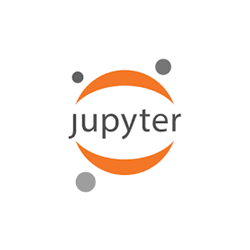JUPYTER
- Acronym: JUPYTER
- Project Title: Infrastructure for cloud-based system education: scalable implementation of Jupyter notebook system for scientific explorations
- Project Reference: 2017-1-PL01-KA203-038747
- Funding Programme: ERASMUS +
- Key Action: Cooperation for innovation and the exchange of good practices
- Action Type: Strategic Partnerships for higher education
- Coordination: UNIWERSYTET SLASKI (PL)
- Project’s Total Funding: 157.435 €
- Start Date: 01/10/2017
- End Date: 30/11/2019

Summary
Project Jupyter@edu tested and implemented innovative practices in the field of higher education. Moreover, it supported synergies with research and innovation activities and promoted new technologies as drivers of improvements in education.
Project Jupyter@edu was implemented by the following institutions from three European countries: University of Silesia (Leader) – Poland, University of Augsburg – Germany, European University Cyprus – Cyprus. In the first phase, the fourth partner from Portugal – Universidade Portucalense Infante D. Henrique also participated in the project.
The MAIN OBJECTIVE of the project was to deploy of cloud-based services for numerical and mathematical scientific explorations in the period of 10.2017-11.2019, equip it with modern tools like grading system and mutually motivate and engage to use it.
The specific objectives:
- Strengthening the cooperation between partner institution, increasing their internationalization through the exchange of good practice and to jointly develop universal teaching materials.
- Promotion of the idea of open education and open software
- Enhancing the quality and relevance of students’ knowledge.
Partners
- UNIWERSYTET SLASKI (PL)
- European University Cyprus (CY)
- Universitaet Augsburg (DE)
- Universidade Portucalense – Infante D. Henrique (PT)
Links


